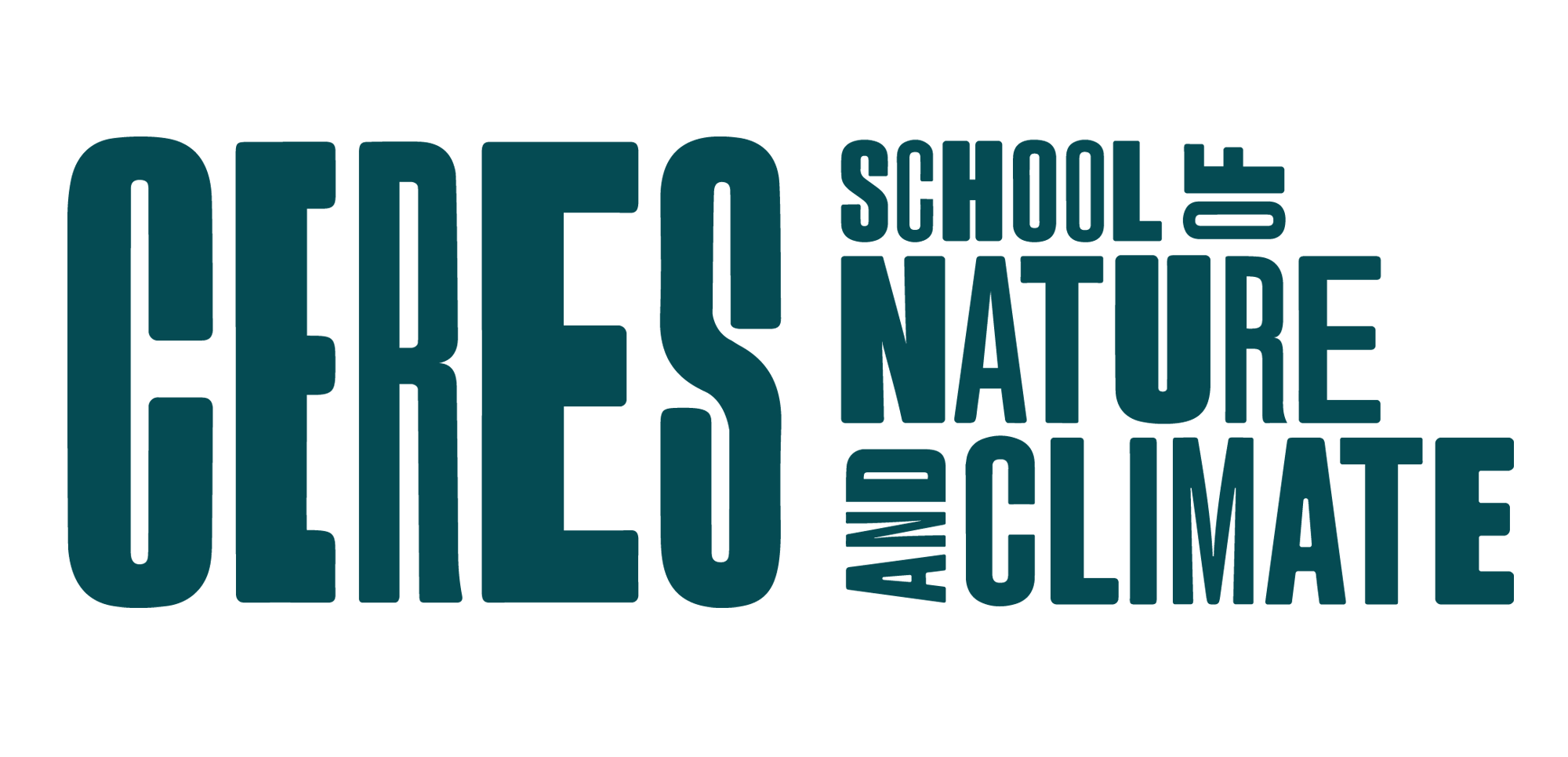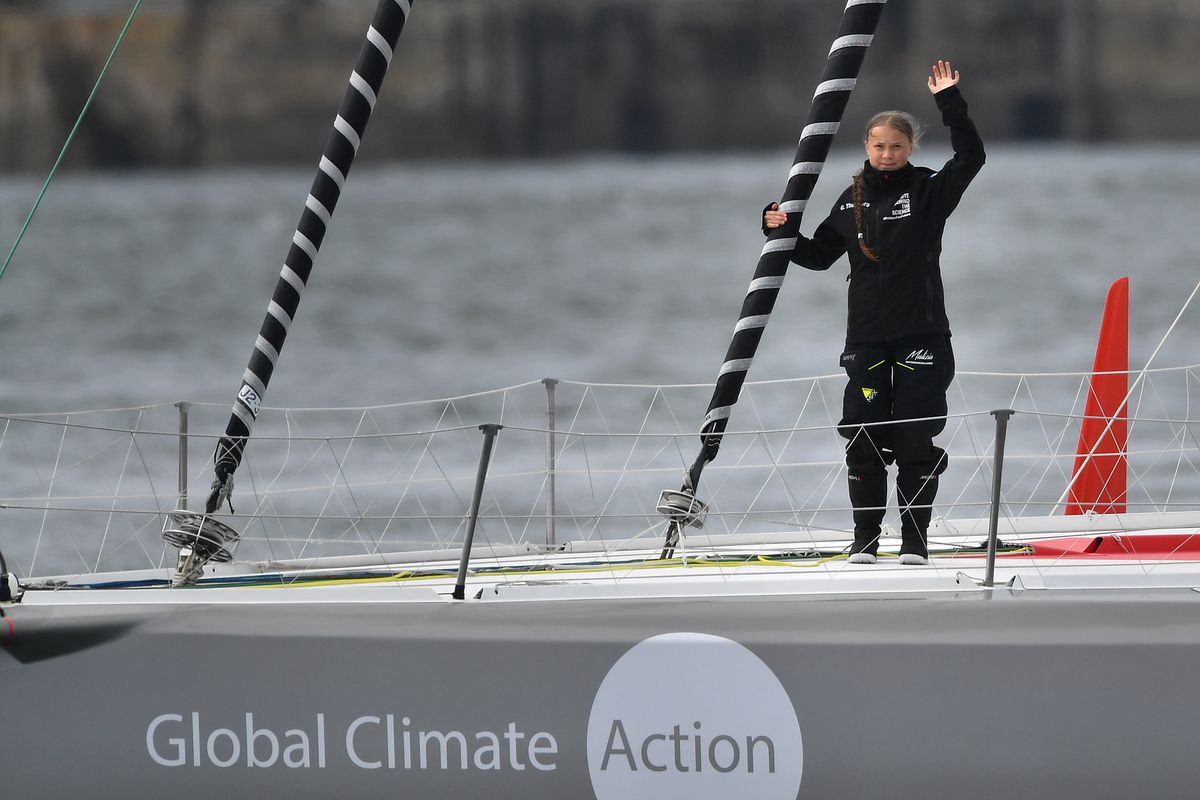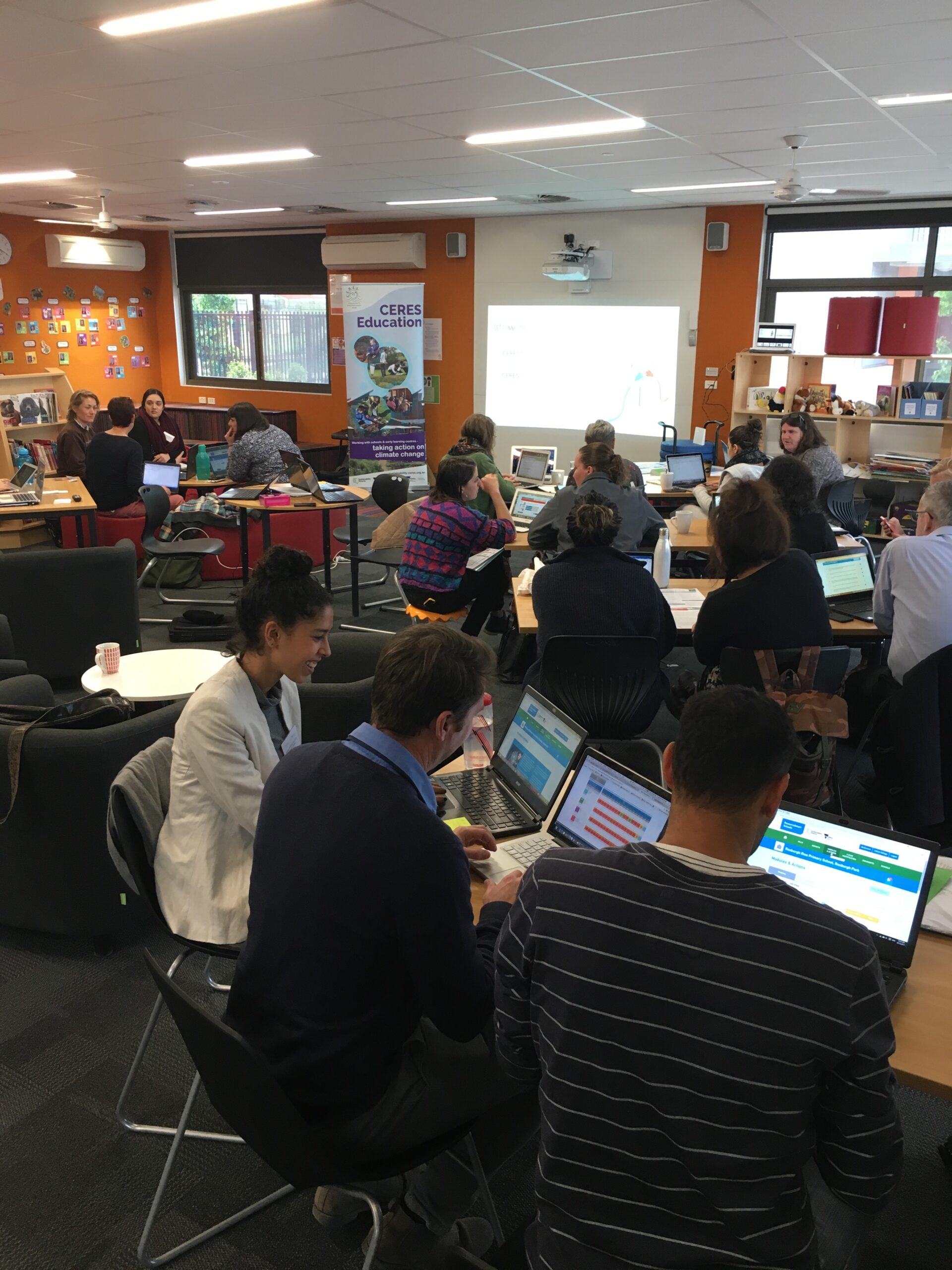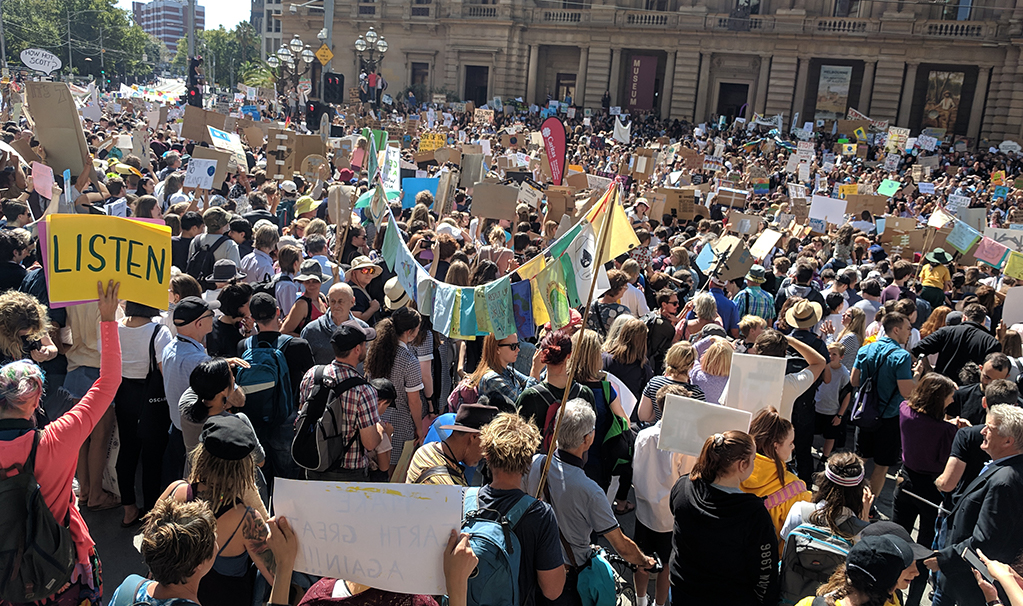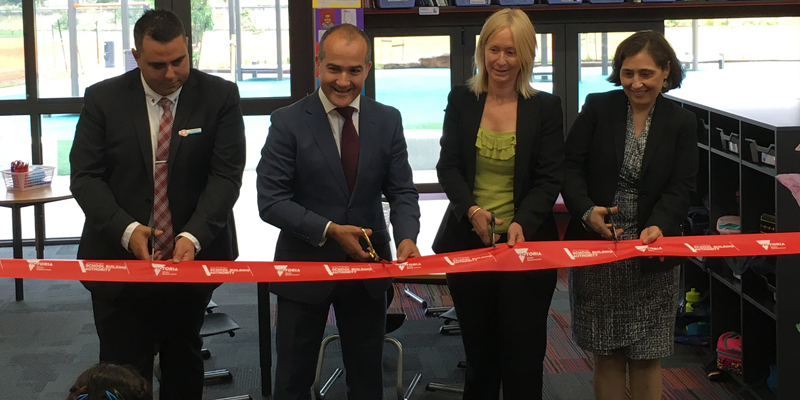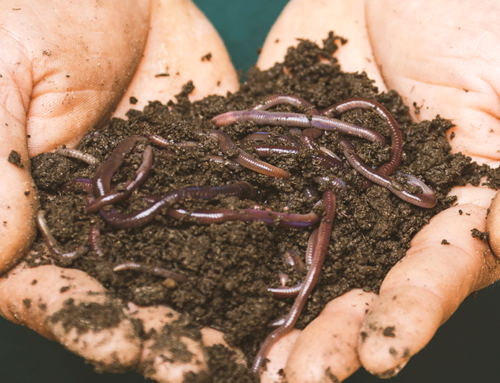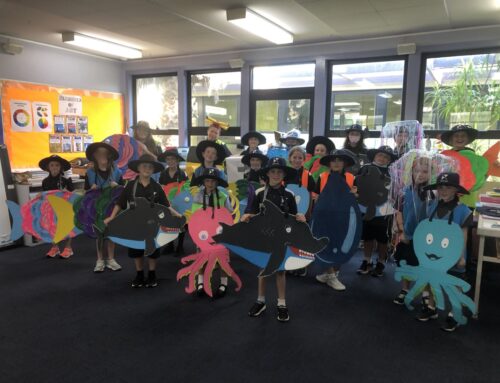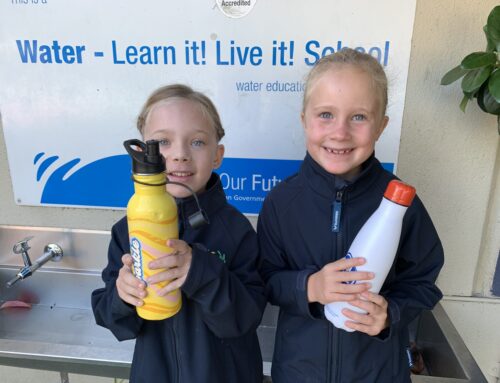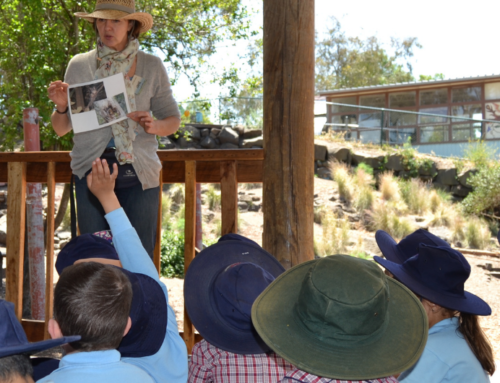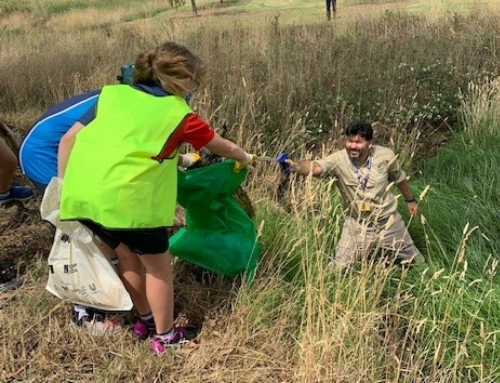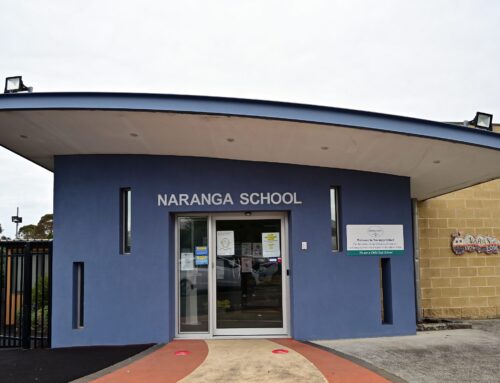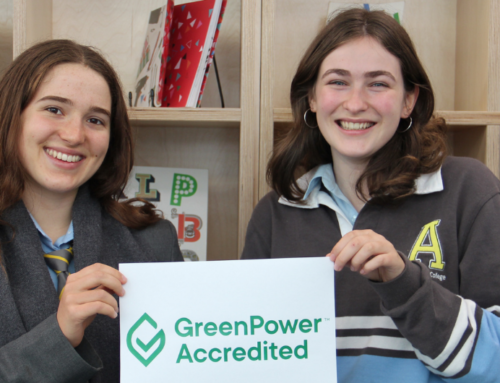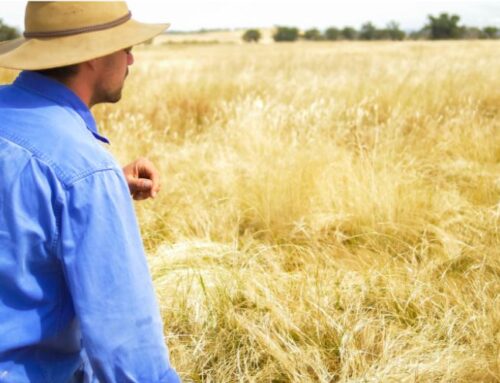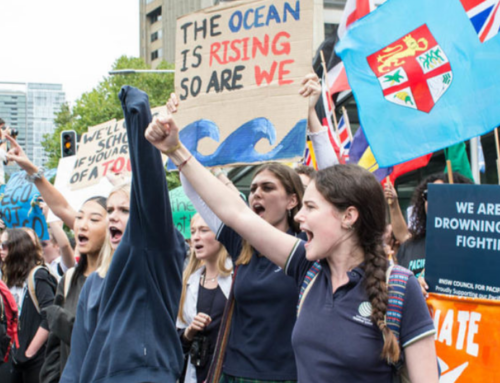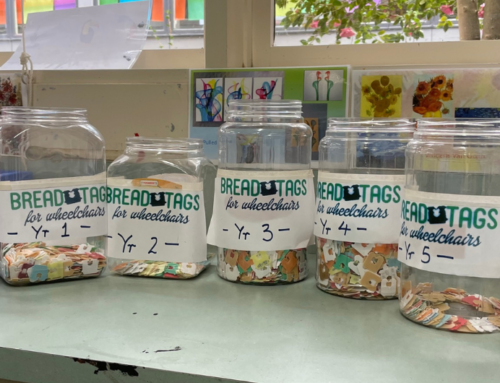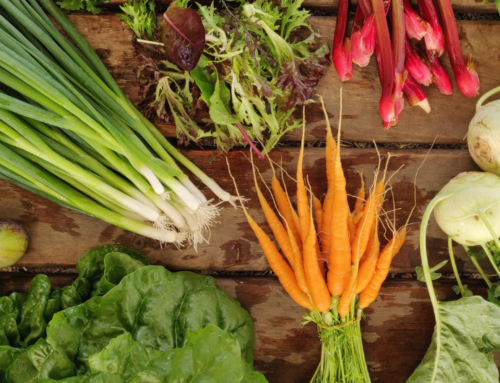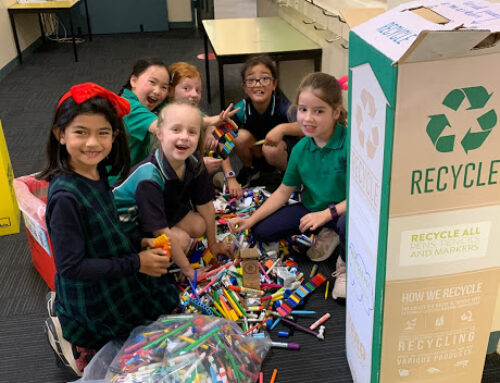May 2019
In this edition of ‘What Inspires Me’ we feature Jack Donkers, Sustainability Co-ordinator at Beaconhills College.
1. How did you first get started with environmental education?
My background has always been about getting into nature and experiencing natural environments. From an early age my family went camping along the Murray River, around Bendigo and along the Great Ocean Road. In high school I was privileged enough to go on camps all around Victoria as well as going to Queensland sea kayaking and doing tours in New Zealand where I confirmed my love and appreciation for the differences in ecosystems and the impacts humans have on natural settings. However, I first get started with environmental education when I worked for the Outdoor Education Group in 2015, a company that contracts to schools to facilitate outdoor education programs and camps. As a group leader, my role was to be one of the facilitators of the programs which would involve me spending days with students and teachers in camp environments teaching students about limits and environmental awareness. This allowed me to start to understand the lack of understanding about climate change, pollution and conservation among student groups. However, there was always overwhelming enthusiasm and inspiration from students when they discussed possible solutions about their personal actions towards improving their own sustainability and their families’.
In 2016, I continued university at Monash in an ecology and conservation course including participating in the Green Steps Program, run by Monash Sustainable Development institute, a training program about practically facilitating sustainability audits for organisations. From this course I successfully applied for an internship with Beaconhills College auditing their waste processes, reporting the results and recommending solutions. I was asked to stay on with Beaconhills to implement this program and at the start of 2017 joined the school as a casual while continuing with my studies. During 2017, not only was I promoting waste reduction at the College but also looking into educational programs, communicating to staff and students about environmental subjects and did audits of other environmental works as well, including water, electricity and biodiversity.
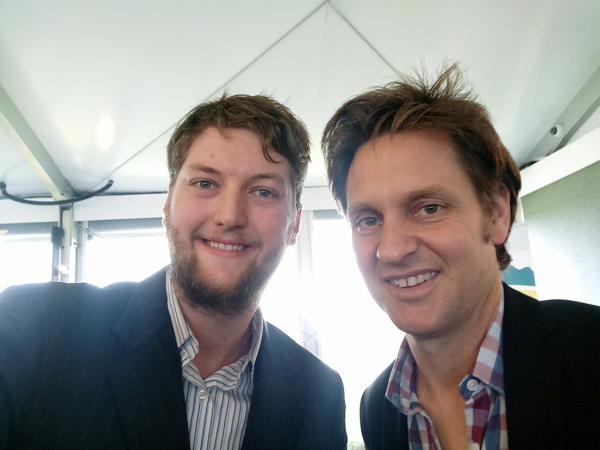
Jack Donkers and the War on Waste’s Craig Reucassel
2. What have been the biggest highlights of your journey so far?
So far my biggest highlights have been around the different inspirational people that I have met as well as being able to see a positive difference in the colleagues who I work with and the businesses that I’ve helped. Some examples of this are meeting different members of the CERES team to see the amount of work they put in to facilitate the ResourceSmart Schools program and all the teachers implementing sustainability programs for their respective schools. Some businesses that I’ve been involved are leaders in sustainability and their works with local communities are awe inspiring, including Casey and Cardinia Councils, CERES and the Monash Sustainable Development Institute.
3. How do you engage with people that are not buying into the sustainability message?
I get this question a lot, and when I answer it people usually don’t expect the answer. I see sustainability different than most people in the sustainability business. Driving sustainability in business isn’t always about doing the “environmentally good” thing, it’s usually to save money. For example, putting solar panels on our roofs is saving us from paying our growing electricity bills. Using LED lights or high insulation to lower air conditioning/heating is doing the same. Recycling and composting lowers our waste bill due to us not needing to send waste to landfill. So for the people who aren’t driven by saving the environment, they are also saving money. Some other ways I communicate sustainability is through making practices more efficient and easier in the long run. Either by reducing plastics in the workplace lowering waste or bringing a keep cup to the canteen rather than a take away cup.
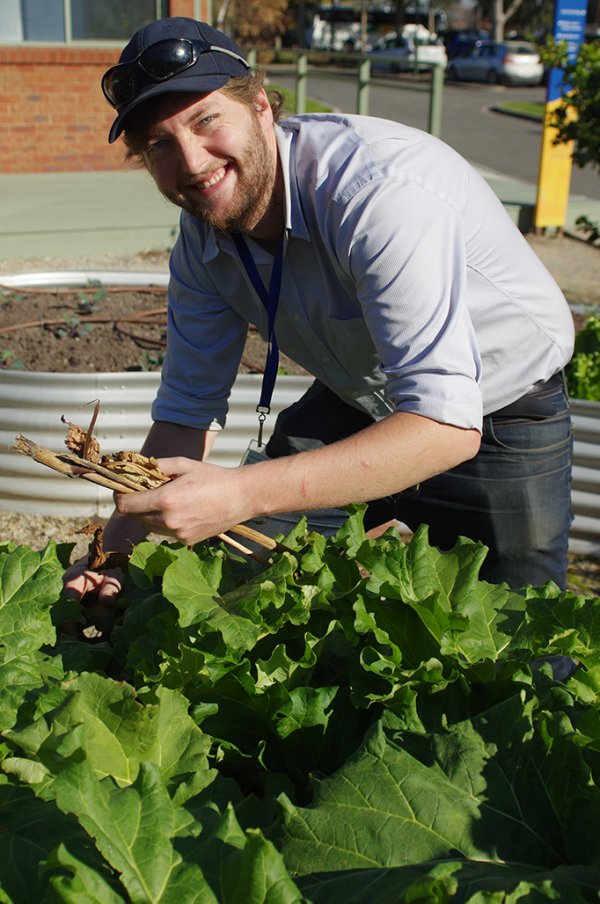
Jack working in the garden!
4. Can you share a school sustainability project or story that you’ve heard about that stood out for you?
One school sustainability story that is one of my favourites is from Athol Rd Primary School. One teacher, who was interested in sustainability and improving the program at the school, decided to develop a teaching program based on garden permaculture and caring for plant life. This in turn is teaching students about sustainability through a dedicated class and allowing students to be in learning environments as well as actively working to promote sustainable food management paddock to plate philosophy.
5. What is your favourite environmental education resource for schools?
My favourite environmental education resource for schools is for companies to offer excursions/camps to various places letting students experience different locations and environments. Whether that be the Dolphin Research Institute facilitating excursions to Phillip Island or the Port Phillip EcoCentre, promoting students to come and learn about oceans and the bay. This particularly includes camp based companies like Outward bound, the Outdoor Education Group and Bindaree Outdoor Education Services, which teaches students about the environment through first hand learning outcomes and raising awareness of students towards the environment.
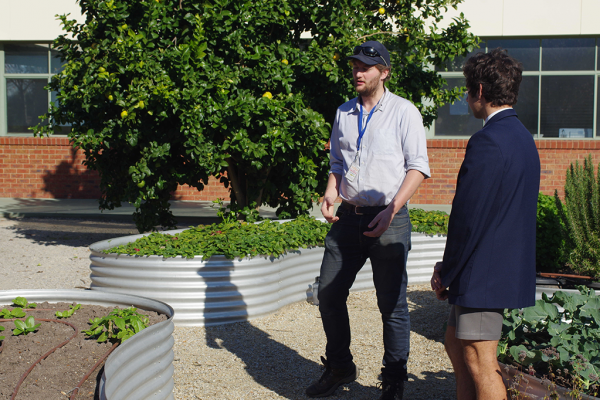
Jack and student in the school’s garden.
6. If you could be a sustainability superhero, what name would you choose and what powers would you have to make the world more sustainable into the future?
If I were a Sustainability superhero, my name would be captain atom, and my power would be to detect what atoms are in objects, turn objects into their base atoms and reform molecular structure of objects. This power would allow me to change plastic into edible, compostable foods and lower waste output of industry, also this power would let me turn CO2 into carbon and oxygen reducing atmospheric CO2 levels.
Thank you Jack for sharing your story!
Learn more about Beaconhills College by visiting their website.
